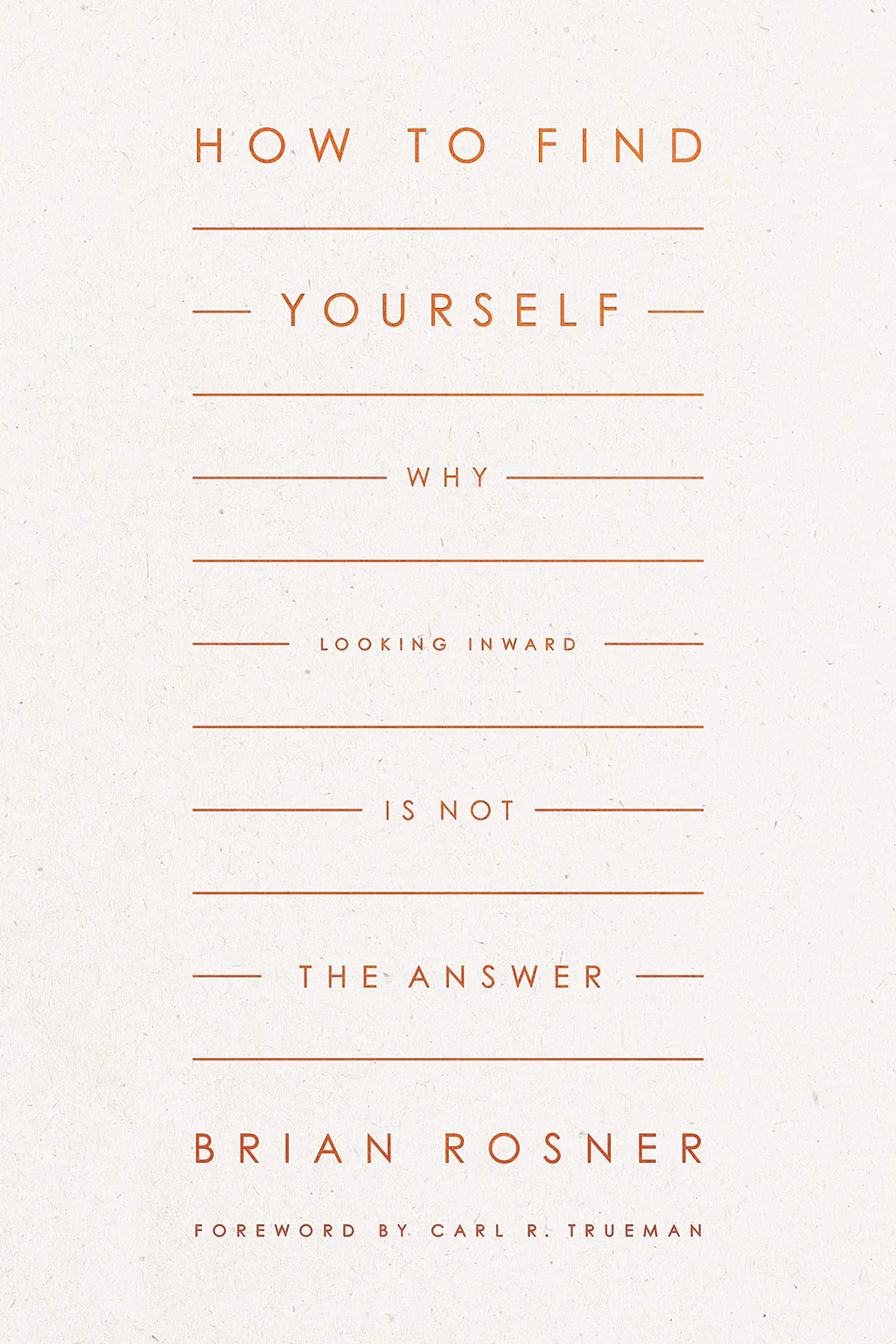
Brian S. Rosner
Reviewed by: Nicholas J. Thompson
How to Find Yourself: Why Looking Inward Is Not the Answer, by Brian S. Rosner. Crossway, 2022. Paperback, 237 pages, $18.79 (Amazon). Reviewed by OP pastor Nicholas J. Thompson.
It doesn’t require a degree in sociology to recognize we live in a culture that is obsessed with personal identity and convinced that to know ourselves truly we mustn’t look beyond ourselves. It is called expressive individualism, the ideology that external roles, relationships, and revelation play no part in defining who we are as persons. As a pastor seeking to help my people think through this late modern view of selfhood, I find Brian Rosner’s latest book How to Find Yourself a welcome guide. The book is unabashedly Christian, but Rosner has written it with a particular apologetic thrust that makes it readable and relatable, whether you are a Christian or not.
In part one, he quotes from both academic and popular sources to carefully delineate the key tenets of expressive individualism (e.g., look inward, reject authority). Rosner then deconstructs the self-made self, showing that it is actually leading to identity angst, not identity assurance, and that instead of leading to human flourishing, it is leading to human floundering. That, of course, is because humans were never designed to be the definers of their identity, morality, and destiny. Rosner takes us back to Genesis 3 to show us that expressive individualism didn’t begin with Rousseau; it began with the serpent in the garden of Eden, tempting our first parents to cast off the external authority of an oppressive God and to be their own lords. The result? Death and destruction.
In part two, Rosner demonstrates that because we are created as social creatures, we cannot understand ourselves outside of our relationships. No one can consistently define himself or herself without reference to other people and God, for it is actually in the context of social interactions that we come to find ourselves. While expressive individualism leads to death, knowing yourself in relation to God as his beloved child in Christ is the path to flourishing.
In part three, Rosner shows how not only our relationships but also our story shapes who we are and perceive ourselves to be. Our past shapes us considerably, as do our future hopes and dreams. Rosner’s critique of the identity narrative of secular materialism is excellent, but unfortunately, his chapter on social justice is concerning. He is critical of the movement, but far too sympathetic. For example, he states, “Standpoint theory and intersectionality have their legitimate place” (154). He claims woke-ism has “good intentions,” that it is merely “incomplete,” and that its “transformative vision of the future is inspiring and worthy” (159). Anyone who has read literature from the Frankfurt School and beyond recognizes this is far from the case. In the end, Rosner rightly shows that only the story of the crucified and risen Christ can deliver us from identity angst and make us to know ourselves in truth.
Rosner concludes with two chapters giving some practical pointers for how to find ourselves in Christ. Readers will find helpful encouragement to give themselves to the means of grace, both public and private, in their identity formation.
Overall, How to Find Yourself is a helpful and engaging critique of expressive individualism that demonstrates how the God and gospel of Christianity alone can lead us to a proper self-perception and thereby to a life of freedom and flourishing. Rosner’s greatest contribution is helping us to see the place of social interaction and story in our sense of self, and how that is by the good design of God and according to the good news of God’s gospel. For that reason, I warmly commend the book to discerning readers.
April 27, 2025
The Devoted Mind: Seeking God’s Face in a World of Distraction
April 20, 2025
April 13, 2025
Suffering: God’s Purpose in Our Pain
April 06, 2025
Sunday Matters: 52 Devotionals to Prepare Your Heart for Church
March 30, 2025
On the Trail with a Missionary
March 23, 2025
Midnight Mercies: Walking with God Through Depression in Motherhood
March 16, 2025
© 2025 The Orthodox Presbyterian Church